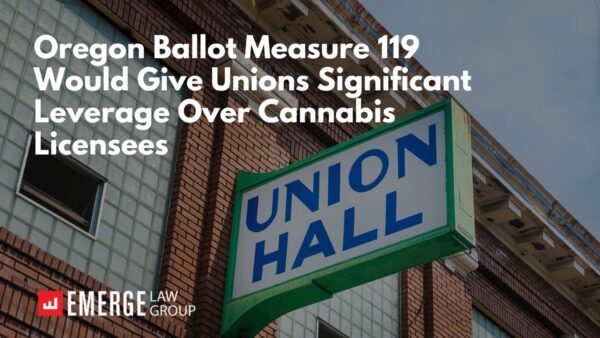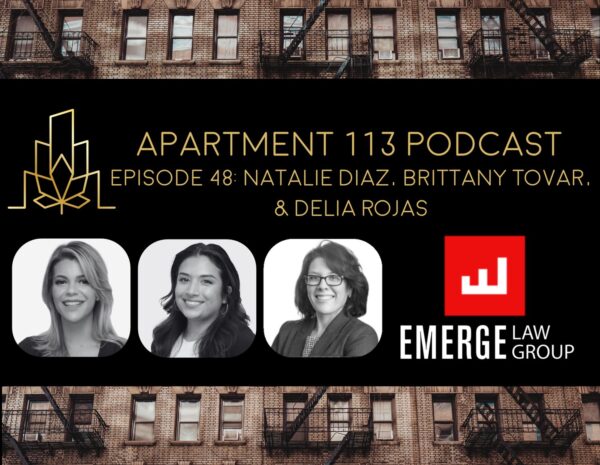There hasn’t been a dull moment in the California cannabis industry since the passage of Proposition 64, and rolling into 2022, this year doesn’t look like it’s going to be any different. The sunset process for provisional licenses begins and cannabis taxes were raised as the market continues to fall. On the bright side, licensees may apply for state equity license fee waivers and the Cannabis Appellations Program will be rolling out, which the industry hopes will give small farmers a competitive edge in a saturated market. Let’s take a closer look at what’s in store for 2022.
Provisional Licenses
This new year brings the end of the issuance of provisional licenses for many applicants and higher thresholds to renew.
• As of January 1, 2022, the The Department of Cannabis Control (“DCC“) no longer will issue provisional cultivation licenses to licensees which would hold over one acre of outdoor or 22,000 square feet of mixed-light or indoor.
• As of July 1, 2022, the DCC will no longer issue any new provisional licenses for any license type unless the applicant falls under one of two exceptions (see below). However, in order to meet the upcoming deadline, all applications for any license type must be submitted by March 31, 2022.
• Small Farmer Exception – An applicant for less than 20,000 square feet can apply for a new provisional license until June 30, 2022. However, the provisional license must be issued by September 30, 2022.
• Equity Applicant Exception – An applicant that qualifies as a social equity applicant can apply for a new provisional license until March 31, 2023. However, such provisional license must be issued by June 30, 2023.
Applicants holding provisional licenses will also face deadlines with respect to renewal.
• Starting July 1, 2022, in order to renew a provisional license, a licensee will need to submit: (i) a final Lake or Stream bed Alteration Agreement (“LSAA“); (ii) a draft LSAA; (iii) a notification that application is complete; or (iv) that an LSAA is not needed. Additionally, the licensee will have to submit an initial study, addendum, or checklist to demonstrate substantial progress on California Environmental Quality Act (“CEQA“) review in the previous 12 months by the lead agency.
• Starting January 1, 2023, the DCC will no longer renew provisional cultivation licenses for licensees which would hold over one acre of outdoor or 22.000 square feet of mixed-light or indoor. Thus, all larger cultivation operations will need to be in full annual compliance in order to apply for a renewal next year.
See our handy Provisional License Deadline Chart.
Equity Fee Waiver
As of January 1, 2022, the DCC started their Equity Fee Waiver Program. If a business is eligible, the DCC will waive the license fee. The waiver can be applied for a single license every 12-month licensure period. There are two requirements that must be satisfied to be eligible for an equity fee waiver.
First, the cannabis business cannot have a gross revenue of more than $1.5 million a year.
Second, at least 50% of the business must be owned by people who meet one of the following three equity criteria: (i) cannabis conviction or arrest; (ii) household income is no more that 60% of the area’s median income; or (iii) live in a place for at least 5 years between 1980 and 2016 that was affected by criminalization of cannabis. If the business reaches these thresholds, they can submit a request form when applying for, or renewing a license.
Cultivation Taxes
As the cannabis industry continues to face external hardships from local communities, federal and local government, or otherwise, the State of California continues to increase the cost to participate in the legal market. As of January 1, 2022, the California Department of Tax and Fee Administration (“CDTFA“) raised the cultivation tax even despite the price for cannabis has dropped to about $200 to $500 per pound. This was even after California announced that there was a $31 billion budget surplus. In response, late last year, an owner of Flow Kana called for distributors to withhold paying taxes after July 1, 2022. The goal was to spark change on the state level to suspend, eliminate, or at least lower taxes, and it looks like the industry’s voice is starting to be heard. On Monday, January 10, 2022, following the introduction of the proposed state budget for 2022, Governor Newsom indicated that he is open to tax reform for all cannabis operators. This is a decent step forward for the efforts made by the industry this last year. Hopefully, 2022 is the year for a little relief to California cannabis operators.
Appellations Program
On November 23, 2021, the Office of Administrative Law approved the proposed regulations for the Cannabis Appellations Program, which went into effect on January 1, 2022. The regulations detail the process and requirements by which a “petitioning organization” (defined as a group of licensed cultivators of 3 or more within the proposed areas of appellation of origin) can apply for and establish a specific appellation of origin. However, CDFA is not accepting applications at this time. CDFA has indicated that they are working on the administrative structure for the review process. Acceptance of applications are not expected until at least mid-2022. Overall, this gives cultivators time to collaborate and put together the complex application to apply for and create an appellation. Petitioners will need to prepare and submit a detailed description and documentation of the proposed appellation. As the program develops, CDFA plans to send out updates to inform the public on the process forward.
Emerge Law Group is keeping up to date on changes in the California cannabis industry. If you have any need any assistance with obtaining or renewing a license, please contact attorneys Genny Kiley or Delia Rojas from our California Regulatory Compliance and Licensing Practice Group.





